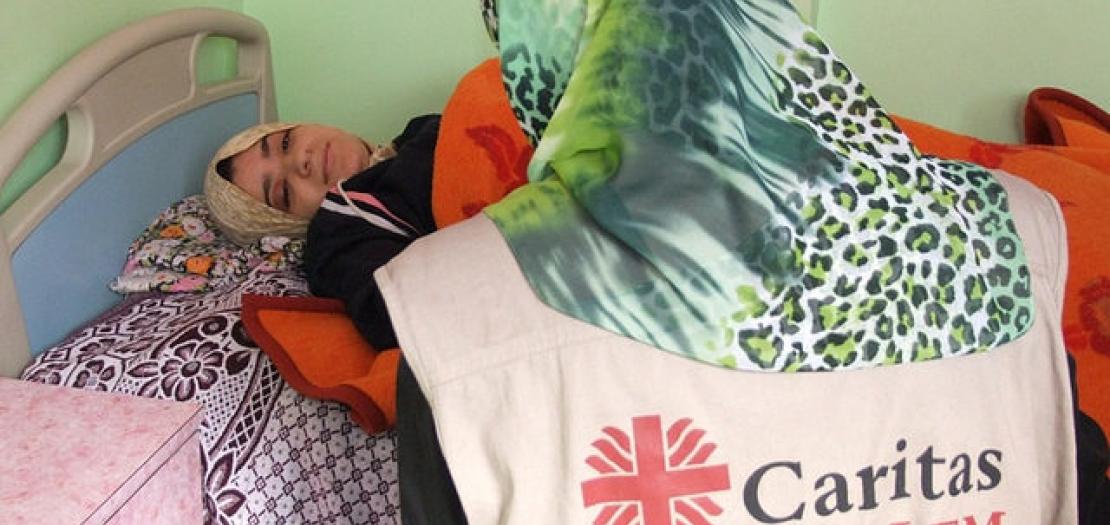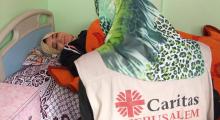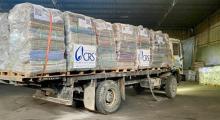Issued by the Catholic Center for Studies and Media - Jordan. Editor-in-chief Fr. Rif'at Bader - موقع أبونا abouna.org

As the ceasefire holds in Gaza, the community remains suspended in a delicate balance between hope and despair. For Caritas Jerusalem workers Nathalie and Abeer, who are both residing in Gaza amidst the ruins, the ceasefire offers little comfort when daily survival is fraught with challenges. Yet, their testimonies illuminate the resilience of a people living under the most dire of circumstances.
Caritas Jerusalem, continuing its vital work, has established a medical point on Al Rasheed Street in central Gaza to support the displaced who have returned to their homes. Despite the brutal realities of daily life, this point is a lifeline for those navigating the precarious conditions of the aftermath of war.
Nathalie’s Struggle for Normalcy
Nathalie’s voice, speaking from the St. Porphyrius compound, paints a vivid picture of what life looks like for those who have sought refuge in places of worship. "We are among those who are still here... all Christians are still located in churches' compounds. Nobody has left," she says, explaining that while some basic needs like food are available, it is hardly a life worth living.
The compound provides safety, but essential services are still out of reach. "There is no water, no electricity, no market to buy anything. We have to walk long distances to find anything of use, and even then, we may find nothing."
The physical environment compounds their suffering. "We are living this cold weather now... people are sleeping on the floor, with nothing to keep warm," she continues. The destruction of homes makes the simple act of returning to one’s own house unthinkable. "Even if your house is still standing, it is not suitable for living... no materials are available to repair homes."
Nathalie’s words resonate with the uncertainty that marks daily life: “We are still in phase one... we don’t know if the war will end or continue. We don’t know if we will be deported... we don't know if the crossings will open.” Despite the hardship, the church continues to offer refuge and generosity, providing food and shelter, but the long-term survival remains uncertain.
Abeer’s Battle with the Basics
Abeer, on the other hand, paints a similarly dire picture but with a different perspective. She describes a life dictated by scarcity, living in a house that does not belong to her, constantly facing the risk of being evicted. "One phone call might find us in the street, in the rain," she shares. The constant fear of displacement is exacerbated by a lack of essentials.
Like Nathalie, Abeer is haunted by the loss of basic comforts that once defined daily life. “I miss the feeling of being in my own home... I miss the independence, the ability to just wake up and make a cup of tea,” she says. But survival has forced Abeer into a different rhythm—one where firewood, instead of gas, is the source of heat, and the day is spent gathering enough for mere sustenance.
As she reflects on the difficult situation, Abeer notes the emotional toll: "Our days are not blessed... we feel like life has conspired against us." Yet, she remains hopeful for a future beyond survival, expressing a deep longing for a return to normalcy. "I miss my office... I just want to focus on my work. Nothing feels like working from the office."
The human cost of a ceasefire
Both Nathalie and Abeer highlight the chilling truth that despite a ceasefire, Gaza’s inhabitants are still fighting a war within—against the crushing weight of uncertainty, trauma, and the battle to restore their dignity. Their testimonies underscore the resilience of the human spirit even in the face.







